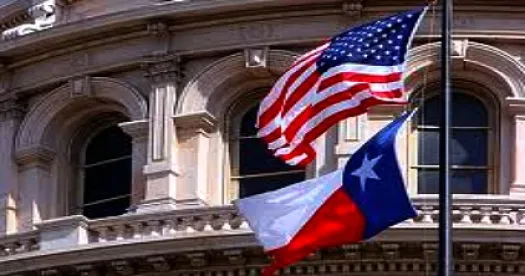The new law in Texas which effectively bans abortions in the state (S.B. 8) contains a provision deputizing citizens to sue those involved in performing abortions. Under this bounty provision, when a suit is successful, the plaintiff can receive cash judgments of $10,000 from those they sue.
This bounty provision has been compared by some to whistleblower reward laws, which compensate individuals who expose violations of the law. However, leading whistleblower law expert Stephen M. Kohn, explains that the Texas law is, in fact, not a whistleblower law and bears no relation to whistleblower reward laws.
The Texas anti-abortion law has been described as a whistleblower law, is that accurate?
Kohn: No, the Texas law operates under entirely separate principles from whistleblower laws and is at odds with the American legal system. The Texas law enables vigilantism. It allows individuals to take the law into their own hands. Whistleblower laws, in contrast, marry the whistleblower to the responsible federal agency.
All of the modern whistleblower laws tie the whistleblower directly to the government. Under some laws, the whistleblower has no rights independent of giving evidence to the government. And under one law, where they can file a lawsuit, it is filed in the name of the government and ultimately the government has complete control of the suit and can dismiss it at any time.
By these checks and balances whistleblower laws are not vigilantism. The Texas law, on the other hand, removes law enforcement agencies from the law and fosters vigilantism.
How does the Texas law compare to the Dodd-Frank Act whistleblower law?
Kohn: There is no similarity whatsoever. Under the Dodd-Frank Act, the whistleblower gives evidence of the crime to the government, and only the government prosecutes. In the Texas law, the government’s role is specifically prohibited. It is a perversion of the whistleblower process found in the Dodd-Frank Act.
How does the Texas law compare to the qui tam provisions of the False Claims Act?
Kohn: The Texas law does not share the fundamental principles of the False Claims Act (FCA). First, under the FCA, whistleblowers file suits in the name of the United States government. The Texas law, on the other hand, is purely private. Second, under the FCA, a whistleblower must give the government all of their evidence. In the Texas law, no such procedure exists because the state cannot get involved. Third, under the FCA, the United States government can intervene in the action and take it over, converting it from a semi-private action to a government action. Under the Texas law, such intervention is prohibited. Fourth, the United States under the FCA always remains involved. They can dismiss the suit at any time, they can put restrictions on discovery, and they have to approve settlements. So although the FCA gives some power to an individual to pursue a claim, the ultimate authority resides with the government.
Furthermore, the sanctions in a FCA case are only based on the harm suffered by the government. There is no private right of action, a whistleblower cannot obtain any compensation on their own. It is only based on how the government has been harmed. Finally, the constitutionality of the FCA was predicated not on the right of a citizen to become a vigilante, or to take the law into their own hands, which is what the Texas law does. The FCA’s constitutionality was predicted on what is known as an “assignment of interest,” meaning the law understands that all of the rights involved in the case are those of the United States government. The government has simply chosen a particular way to pay people who provide invaluable services to help the government enforce the law.
There are numerous guardrails in the FCA that prevent vigilantism and prevent abuses. These include the right of a defendant to obtain attorney’s fees from any whistleblower who abuses the process.
How does the Texas law’s empowering of individuals to enforce the law without any controls from the state compare with other whistleblower laws?
Kohn: The Texas law explicitly violates one of the most important whistleblower laws ever passed: the Civil Rights Act of 1871, which protects the constitutional rights of all citizens, including the rights to blow the whistle and to free speech. The Act was also known as the Anti-Klu Klux Klan Act. During Reconstruction, the KKK, often cloaked with local legal authority or acting when local legal authority just stood by, did vicious attacks on individuals’ rights. So the Civil Rights Act of 1871 was passed to prohibit that type of vigilantism. The Act did not prohibit private action that was done by the state directly. It instead used the concept “under color of law.” At the time, private citizens could act “under color of law” to enforce things like laws against intermarriage, segregation, keeping African Americans off of jurys. If there was a law in place, then the Klansmen could wrap themselves around it and say “I’m just trying to enforce the law,” when committing terrible violations of rights. The Civil Rights Act of 1871 targeted that sort of misbehavior which is a stain on democracy.
The Texas law’s attempt to keep law enforcement out of the law is a reversion back to the outrages of the Klu Klux Klan during Reconstruction. It opens the door to citizen vigilantism “under color of law” which fueled the worst abuses that African Americans suffered during the most disgraceful episodes of Reconstruction.
This article was written by Geoff Schweller.




 />i
/>i
